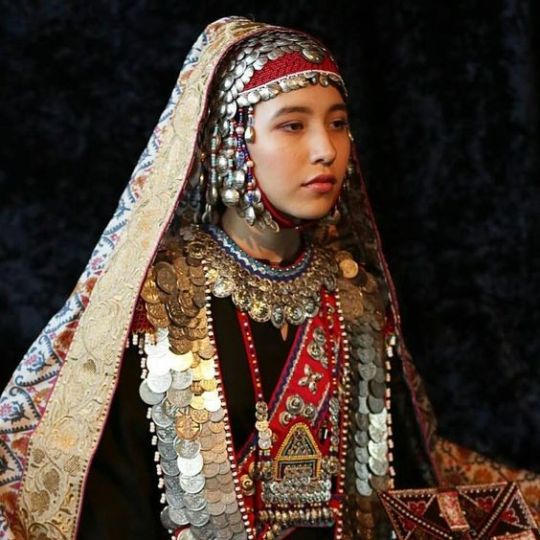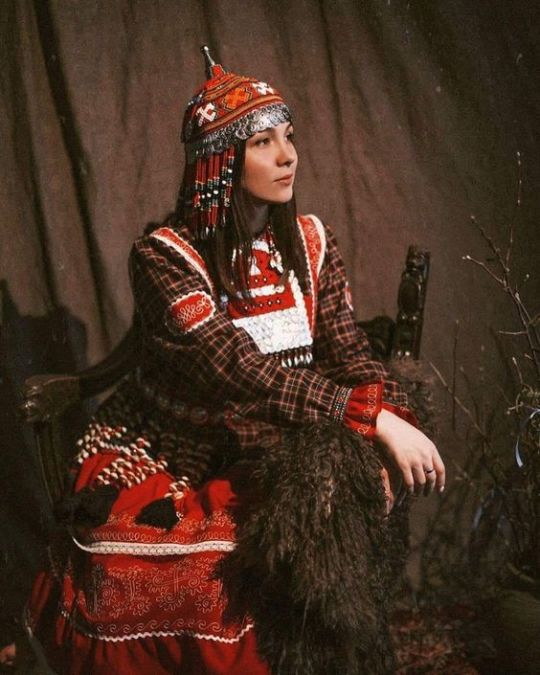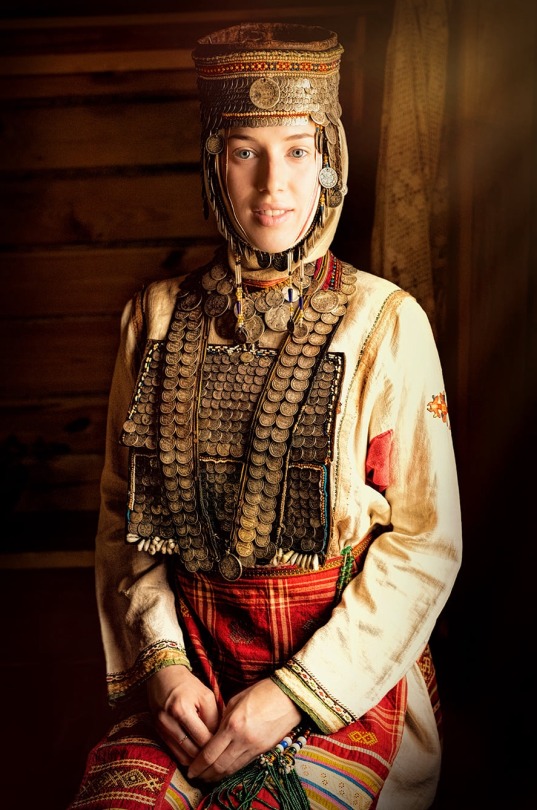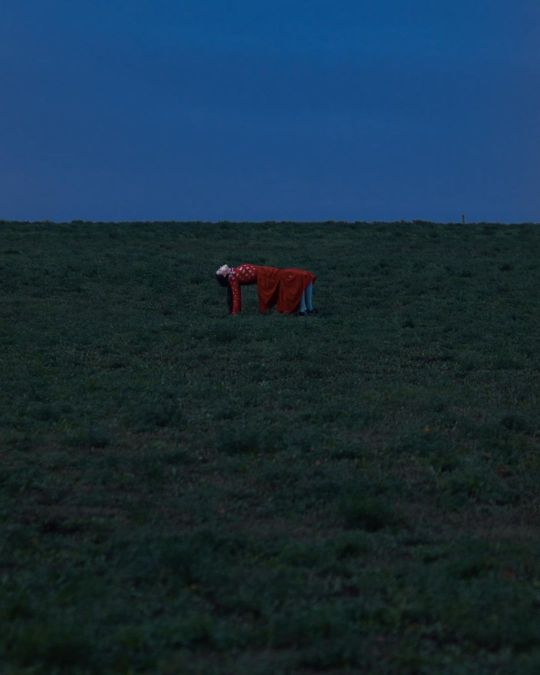#Chuvash
Explore tagged Tumblr posts
Photo


Chuvash girls
480 notes
·
View notes
Text

Chuvash
#turkic#nomad#traditional#culture#traditional clothing#chuvash people#chuvash#turkic culture#folk clothing#folk costume#turks
21 notes
·
View notes
Photo

The Chuvash (Russian: чуваши) are a Turkic people, related to the Oghurs, who are native to a region extending from Central-Western Russia to Siberia. Many live in Chuvashia and ethnic communities throughout Russia, and continue to speak Chuvashi language, which diverged from other Turkic languages over a thousand years ago. They have been subjected to much outside influence, not only from Russian and Turkic peoples, but also from neighbouring Finnic tribes, with whom they have been wrongly identified for centuries. Today, many Chuvash practice a syncretised form of Orthodox Christianity and Shamanism. Traditional clothing of Chuvash women is complex and varies greatly between regions. A distinctive feature is the rich ornamentation of headdresses and jewellery with decorative silver coins. The most unusual feature is called shulkeme - the breast adornment worn by a young married woman. The full set of jewellery a Chuvash woman would wear during the ceremony could weigh up to 16kg. Traditionally, the size and weight of the jewellery displayed the wealth of the bride's family and was a fundamental part of her dowry. The traditional headdress of a married Chuvashi woman is called khushpu. It is worn over the surpan, a strip of white fabric with embroidery at the ends. The khushpu pictured here is one of the oldest and rarest in existence, dating back to the 18th Century. 📸 Alexander Kimushin
303 notes
·
View notes
Text
No language is useless.
Berate and scorn any moron who says otherwise. Harshly!
*yes this is about the Irish language, which many loyalists, unionist politicians and useful IDIOTS in the Republic of Ireland (all because they’re bitter about having to learn it at school, in their 40s! I say move on! For fuck’s sake!) want to see DESTROYED!*
*among MANY other languages*
#dougie rambles#personal stuff#languages#language revival#language revitalization#revitalization#vent post#political crap#language#irish language#gaelige#ireland#indigenous languages#syriac#Adyghe#basque#Talysh#navajo#Chuvash#breton#breizh#hawaiian#mixtec#nahuatl#rapa nui#coptic#Ainu#te reo māori
78 notes
·
View notes
Text

A cute cat wearing a dress of my nationality meow meow ^^
#chuvash#original art#digital art#sketch#national costume#russia#russian culture#cat#meow meow#lets eat huplu
20 notes
·
View notes
Text

9 notes
·
View notes
Text
in need of chuvash miku ❤️💛❤️
I'm not exactly chuvash myself but I grew up in Chuvash Republic and I think she would look good in traditional costumes
7 notes
·
View notes
Text

Polina Osipova
#photography#portfolio#fashion#portrait#film#photoshoot#portra#go sees#polina tammi#polina osipova#chuvash
4 notes
·
View notes
Text


Otoyomegatari
#turkic#turkish#traditional#türk#nomad#artwork#art#anime and manga#manga#otoyomegatari#turkmen#turkic culture#kazakh#kyrgyz#azerbaijani#chuvash#gagauz#uzbek#bashkir#girl
93 notes
·
View notes
Text
[ youtube ] [ song of the week playlist ]
#ah anne#августа#avgusta#music#spotify#youtube#chuvash#song of the week#sotw3923#a. августа#s. ah anne#mp3#*mine
3 notes
·
View notes
Text

Хӗрлӗ ҫӑм пусмаран ҫӗленӗ саппун-кӗпе тата ҫемҫе ҫӑмран ҫыхнӑ шӑтӑкла свитер, тимӗр ҫакӑсемпе илемлетне.
Платье-саппун из красной шерсти и ажурный свитер из мохера, украшенный монетами.
"Чӗрӗ-Чӗре / Heart Living" (2022)
Инсталляция группы HERACHA "Чӗрӗ-чӗре/ Heart Living" предполагает взаимодействие со зрителем - при накоплении электричества подключенные к монетам зуммеры начинают издавать звуки, позволяя зрителю войти в состояние прохождения электричества через свой организм и ощутить тонкие изменения в звучании.
Идея работы - прочувствовать связь с культурой через звук и электричество. Концептуально инсталляция связана с темой самоидентефикации, а также является размышления по поводу возможностей национального искусства.
6 notes
·
View notes
Text
girls in ethnic clothes from pinterest 💖💖💖


#art#artists on tumblr#chuvash#northern caucasus#the only thing i can draw are pretty girls with faces in 3/4#real
2 notes
·
View notes
Text
1 note
·
View note
Text

Young woman from The Chuvash Republic in traditional clothing
The World in Faces project by Alexander Khimushin. Diversity of traditional cultures of the world through the portraits of Indigenous People
The Chuvash people are a Turkic ethnic group, native to an area stretching from the Volga Region (European part of Russia) to Siberia. Most of them live in the Chuvash Republic and the surrounding areas. According to one of the theories, the Chuvash People may be descended from the Volga Bulgars. They have been subjected to much influence, not only from Russian and Turkic peoples, but also from neighboring Finnic tribes, with whom they were persistently and mistakenly identified for centuries. The Chuvash language is a highly divergent form of Turkic, and is not easily recognized as such. Chuvash language is the only remaining member of the Oghuric branch of the Turkic language family.
Traditional clothing of Chuvash women is quite complex and varies greatly from region to region. A distinctive feature of the Chuvash traditional clothing was the rich ornamentation of headdresses and jewelry with silver coins. The most unusual feature is called shulkeme - a breast adornment of a young married woman, decorated with silver coins. A complete set of jewelry was presented in festive and wedding dresses. A Chuvash woman in a full wedding set, could wear jewelry weighing about one pood (16 kg), including silver coins weighing 2-3 kg. In the olden days, the size and weight of the jewelry showed the prosperity of the bride's family and was a part of her dowry.
A traditional married woman headdress of Chuvash woman is called khushpu. It is worn over surpan, a strip of white fabric with embroidery at the ends. On this photo you can see one of the rarest remaining sets of the Chuvash khushpu and shulkeme dated back to 18th century.
Chuvash traditional clothing has long been replaced by the modern one. Nevertheless, today, during national celebrations and festivities, the traditional clothing is being worn quite often.
0 notes

